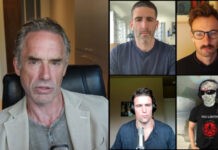Today on ICO Interviews, we talk with Pedro Anderson, COO of Winding Tree, a post-ICO project that plans on making the travel industry offer better value to individual travelers while remaining profitable for providers. Winding Tree is a blockchain-based decentralized open-source travel distribution platform with no centralized control, which means no exorbitant transaction fees and no barriers for entry.
Pedro answered our questions about the project and shared with us an insightful opinion of Winding Tree and what they have to offer.
What’s everyone doing now; how are you splitting the roles and meeting the main challenges?
One of the big differences now after the ICO is that we can focus a lot more heavily on the actual coding for the product. So, in the lead-up to the ICO there was a lot of finalizing and re-checking that everything was good with the smart contracts for the actual token itself but once the ICO finished, a lot of the focus shifted to the hotel product that we’re working on quite heavily. We’ve been running workshops with the airlines so that we can get the airline product up and running, too.
What are the low-hanging fruits; and for the outsider, when will you hit those magical leverage points for, say, hotels?
For the hotel product we have an Alpha version of the product out; it’s available on Github and anyone can check it out. Some of the hotels are already testing it but what we’re trying to get to is a live product where there are value transactions taking place by the middle of 2018. We’re actually hiring a hotel product manager who has experience in integrating back-end systems. As for low-hanging fruit, there are some possibilities in the corporate hotel space, some very easy transactions that can take place with groups, so we’re exploring which one’s going to be the best for that. The main challenge for us is that with the MVP we’re doing a layer one, just working with the current status of the Ethereum blockchain just to get some transactions out there. Layer One Ethereum transactions are kind of slow; they can take one block or so which is a little slower than industry standard but at the same, we are working on getting us up to Layer Two transactions and state channels and so on.
Have you considered that maybe it’d be better to set up teams competing with each other, just like they did with the competing Casper teams on Ethereum, and set those teams off in different directions and see what they come back with rather than taking a stage-by-stage approach?
That may make sense a little bit further on down the line. The challenge right now is that each one of us on the team has very specific skill sets and it’s kind of hard to do some of the work without the others on the team.
How are you finding retuning the organization? Is it causing any pain having to reach into more of a production model – people, legislation, onboarding – getting all those boring bits that make the more exciting bits work?
Surprisingly enough, finding developers for the travel industry has been one of those hiring processes that we less expected so. With blockchain developers you always expect to have a hard time finding good talent because there are so few of them and there are so many opportunities. Believe or not, somebody who understands back-end travel systems is actually, I would argue, even harder to find than some of the blockchain developers. The advantage that we have is that we’re a distributed team so we have some developers in Argentina, some in Prague, and in San Francisco so we’re able to grab talent wherever it’s at and that has made things a lot easier. But of course, it presses the challenge of the distributed co-working at the same time.
What do you see are the most essential factors to getting that community spirit going? When will your first meetups be, and what’s your strategy to get the right people, onboard and grow them?
We have a meetup coming. We have been doing meetups in San Francisco, we have one coming up at the beginning of April where we have travel tech people coming together and we’re doing the brand Techcon, which my co-founder helped to co-found. But a key piece of our strategy with building that community is focused on the supplier. If we get an airline on board, these airlines have developing resources; they have the experience. For us, the key focus is getting those suppliers in because they’re going to be the real game-changers; once they’re in it’s easy to get the community of open-source developers participating.
Do you feel that you’re communicating enough with all your stakeholders, and have you televised your meetups?
We’ve done some. The Q&A at the end of some of the meetups, we have a livestream but that’s something we definitely want to improve is the communication. I think we’ve been doing it about once a month and we’re talking about doing it a little more regularly so folks can see what we’re doing. But right now our focus has been on the product, on the hiring and not as much on the promo around it. So we’ve been keeping kind of low-key and almost intentionally because we want to launch a product and then go back to evangelizing and promoting a lot more.
Do you find it very hard to balance the pressure of short-term expectations of some of the token holders and long-term interests for growth?
From the very beginning, we were very clear that this is a non-profit very long project taking on a multi-trillion-dollar industry so there definitely shouldn’t be short-term expectations. However, as for our personal short-term expectations, we are aiming for more partnerships. We were very clear upfront that the founders are on a four-year vesting schedule: this is a long-term project. What I find in the industry is that you have product companies and then you have ICOs as a product. ICOs as a product is when all of your advisors are ICO experts, the marketing for the ICO is insane but hardly mentions the product. Then they list very heavy-hitting exchanges early on, they pay hundreds of thousands to get listed on those exchanges and the focus is on the ICO itself. On the other hand you have product companies who are more focused on launching their product. In the case of Winding Tree, on a four-year vesting schedule, there’s nothing for them to get out of just the ICO itself, it is a long-term project.
Do you feel that maybe your token model bled the interest in the tokens out by being unlimited, that left nothing and caused this crash within the price?
The token model was designed specifically to decentralize and to under-hype, so we wanted to eliminate FOMO, which sounds contrary but when you think about the long-term prospects of the project it makes a lot of sense. If you look at a project like FlowerCoin, they may or may not succeed but they’ve given so much of the incentive to the very early backers that it is very hard for them to profit unless it’s purely hyped right. With Winding Tree, the token model was designed to incentivize long-term growth as the platform builds. If the demand increases then naturally there’s more value for those tokens because it’s a limited supply. It was never meant to be FOMO and hype around the ICO that drives the price; it’s a product-driven company through and through.
What would you classify as the biggest risk to the whole success of the venture? What keeps you up at night?
A lot of it is driven by the general crypto market itself. If you look at Ether, the price dropped significantly over the last few weeks and we happen to have our ICO right in the middle of that dip. It was quite frustrating to have the price of the general market affect our product or the perception of our project so much. So I think the only real big challenge to this project succeeding, from my perspective, is the development of the updates that we’re looking forward to on Ethereum, for example with Casper, and the general legislation around blockchain. If those things are going well and the climate is right on that front, I don’t see why we would fail unless we do something terribly wrong. We have a good team of advisors who are knowledgeable in the industry and we’re making progress so I’m more concerned with the general blockchain climate than I am with the travel industry itself.















